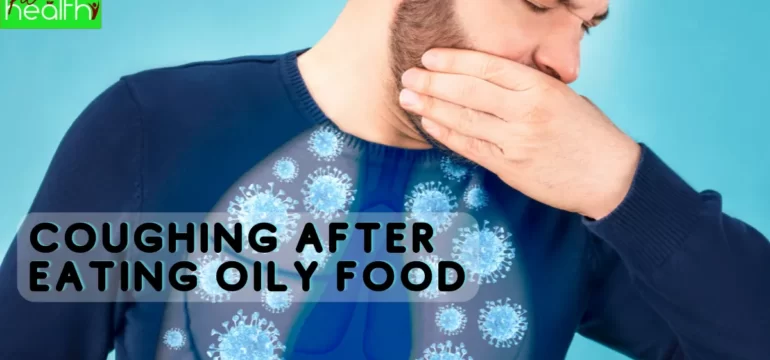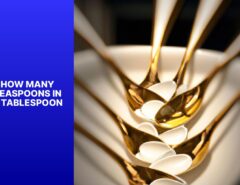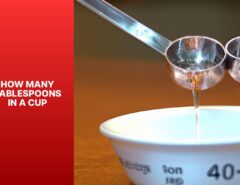A coughing after eating oily food may seem like an unusual side effect, but it’s not necessarily cause for concern especially if it happens only occasionally. If you eat food that contains large amounts of oil, you may experience more than just coughing; your throat might feel sore or your chest might feel tight and painful as well. Your doctor can help you figure out the cause of these symptoms and whether they’re serious enough to warrant medical treatment. But first, here are some facts about coughing after eating oily food and what to do if this happens to you.
What Causes Dry Coughing?
Many people experience coughing after eating peanuts, and while it may be alarming, it’s usually nothing to worry about. Peanuts contain oils that can coat the throat and trigger a cough reflex. This is especially common if you’re not used to eating them.
In most cases, the coughing will go away on its own after a few minutes. However, if you find that you’re coughing frequently or your cough is getting worse, it’s important to see a doctor. While it’s unlikely that coughing after eating peanuts is indicative of a serious problem, it’s always better to be safe than sorry.
What Causes Wet Coughing?
While coughing after eating peanuts is not usually cause for concern, there are some possible explanations for why it happens. One possibility is that you have an allergy to peanuts. If you notice that you start coughing after eating peanuts or other foods, it’s important to see an allergist to get tested.
Another possibility is that you have a condition called eosinophilia esophagitis, which is when your immune system overreacts to certain foods. If you have this condition, you’ll likely need to avoid the trigger foods and take medication to control your symptoms. In some cases, after eating, coughing can also be a sign of GERD (gastroesophageal reflux disease). This is when stomach acid flows back up into your esophagus, causing irritation.
When to See Your Doctor?
If you are also experiencing shortness of breath, difficulty swallowing, or chest pain, these could be signs of a more serious condition and you should seek medical attention. If your cough is accompanied by a fever over 101 degrees Fahrenheit, this is also cause for concern and you should speak with your doctor. In general, if your cough is preventing you from living your life normally or is causing you a great deal of discomfort, it’s best to err on the side of caution and make an appointment with your doctor.
How to Know If a Dry or Wet Mucusy Cough is Serious?
Many people experience a cough after consuming oily foods. This is usually due to the fact that when we eat oily foods, they tend to coat our throats. This can lead to irritation and inflammation, which can cause a cough. However, there are some cases where coughing after consuming oily food can be a cause for concern. If you have a dry or wet mucusy cough, it could be a sign of an underlying health condition. If you are concerned about your cough, it is best to speak with a doctor to rule out any serious causes.
The Importance of an Early Diagnosis
If you’re coughing after eating oily food, it’s important to see a doctor to rule out any underlying causes. While the cough may be due to something benign, like acid reflux, it could also be a sign of a more serious condition. Early diagnosis is key to ensuring the best possible outcome. Your physician will perform a physical exam and order tests as needed to determine if there are signs of lung cancer or heart disease, which can cause coughing after eating oily food.
Also Read: Green Curry Keto Friendly Thai Food
FAQ’s
What Happens Next if Your Diagnosis Is Lung Cancer
A cough that persists after you’ve eaten oily food could be a sign of lung cancer. If you have this symptom, it’s important to see a doctor right away so that they can rule out other potential causes and provide you with an accurate diagnosis. If your diagnosis is lung cancer, there are treatments available that can help improve your prognosis. Don’t hesitate to reach out to a medical professional if you’re experiencing this symptom.
What were your first lung cancer symptoms?
I was a heavy smoker for many years, and my first lung cancer symptoms were a cough that wouldn’t go away and shortness of breath.
Is my cough a lung cancer cough?
No, coughing after consuming oil is not indicative of lung cancer. However, it could be a sign that you have GERD, which is a condition that causes stomach acid to flow back up into the esophagus.
Where does lung cancer usually start?
Most lung cancers start in the cells that line the air passages. These cells are called bronchial cells. Cancer can also start in other areas of the lungs, such as in the alveoli (air sacs).
What foods triggers cough?
Many people experience coughing after consuming oily foods. This is because the oil can trigger the release of histamines, which can lead to inflammation and irritation in the airways.
This typically resolves within an hour or two. If symptoms are not relieved by drinking fluids or taking an antihistamine, it may be necessary to visit your doctor or allergist as this could be indicative of a more serious condition.
Why do I get a cough after eating greasy food?
When you have a cough, your body is trying to clear your airways of mucus and other irritants. having a cough after consuming oily food could be due to the fact that the oil is sticking to your airway and irritating it.




